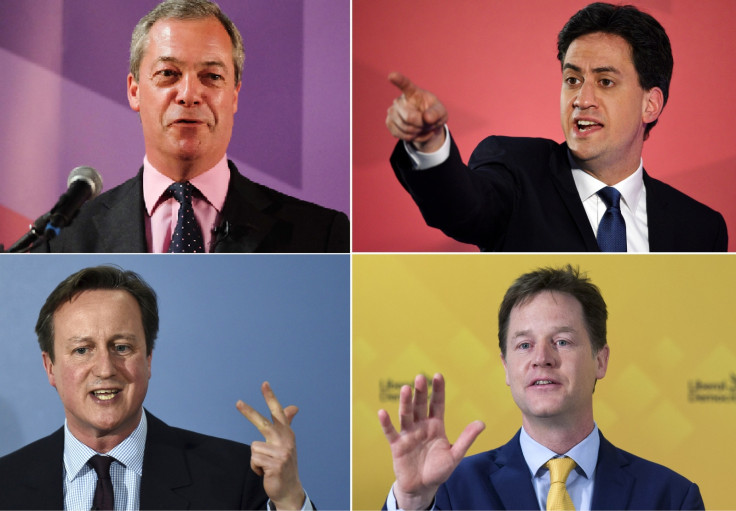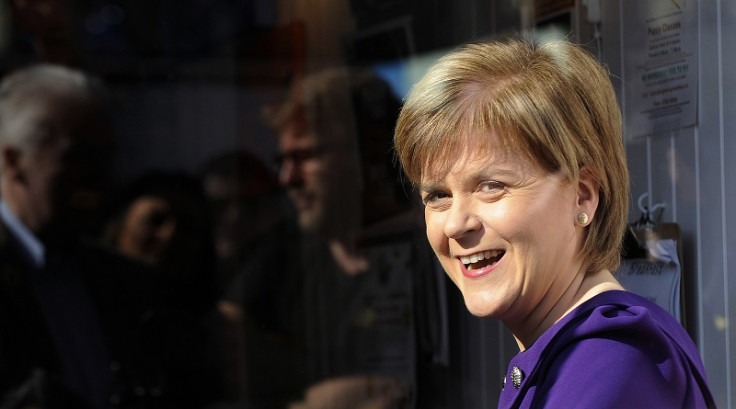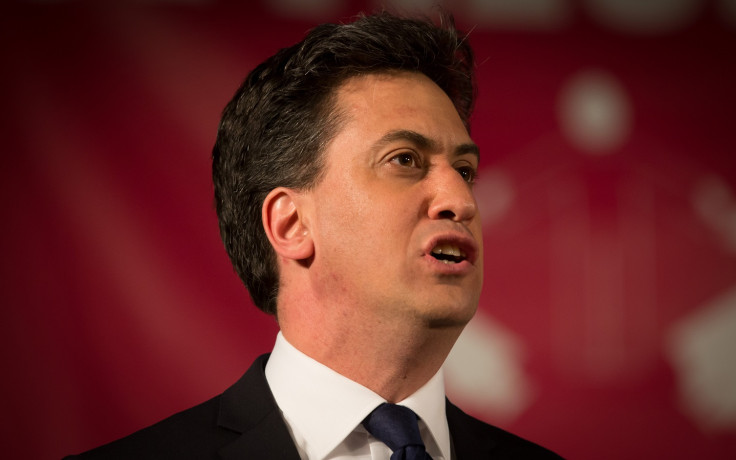Election 2015: A new political era is dawning in Britain

We know what is going to happen in the UK general election. And we also do not know. The reason? We are guaranteed a hung parliament, which means no single party has a majority of seats in the House of Commons. But that also means wheeling and dealing between the major and minor parties to form a government. Anything can happen.
Wait, so nobody will win? Britain won't have a government?
Not quite. A party will win (unless they get the same number of seats) but they might not get a majority in the House of Commons. That means a party that did not win the election could still form a government by doing deals with like-minded smaller parties in the Commons.
Polls suggest the centre-right Conservative party – which has governed in a coalition with the Liberal Democrats since 2010 – will win the most seats, but fall way short of the 323 needed to command a majority in the 650-seat legislature. That means the Conservatives will have to look for support from minor parties, such as the Lib Dems, to form a new government.
It is the same with the centre-left Labour party. It will probably fall short of the Conservatives by number of seats but arguably have a better chance of forming a government because it could be propped up by a greater number of potential partners in the Commons. That includes the Liberal Democrats, which is a centrist party with both left and right-leaning members, giving it some political flexibility in who it goes into government with.
Who are some of these smaller parties?
The Lib Dems and Nick Clegg are up there and likely to win just shy of 30 seats, down from the 57 the party won in 2010 after a bruising few years propping up a Conservative government, which has enacted large cuts to public spending, and the scars of a broken promise not to raise university tuition fees. The government ended up trebling them.
Then there is the Scottish National Party (SNP), the pro-independence left-wing nationalists led by Nicola Sturgeon, which is set to almost wipe out Labour in Scotland. That is essentially why Labour cannot win an outright majority at this election.
The SNP looks likely to claim more than 50 seats in the Commons, up sharply from its six in 2010 amid a wave of anti-Westminster sentiment among Scottish voters – Labour and Conservatives are widely considered to be interchangeable – and off the back of a closely-fought independence referendum. It lost the referendum but has been promised more devolution from Westminster. It will be almost everything but independence. So not really a loss at all.

Then there are the Northern Irish parties. Sinn Fein will win a couple of seats but as staunch Irish republicans will abstain from turning up at the Commons. The Democratic Unionist Party (DUP) will also win a number of seats and could comfortably prop-up a minority Conservative government. Then again, so will the Social Democratic and Labour Party (SDLP) from Northern Ireland, which would get behind a minority Labour administration.
The Welsh nationalists, Plaid Cymru, are very similar to the SNP but will only win a handful of MPs at best. Then there's the Green party, which is on the radical left, which could win one or two seats.
Ukip, led by Nigel Farage, may also win a handful of seats. It has been a thorn in the sides of the two major parties, Labour and the Conservatives, from which it is hoovering up votes. Its populist platform – some would say demagogic – is anti-immigration and anti-EU.
It is also socially conservative and traditionalist. So it has won a large amount of support from the alienated white working classes, who feel left behind by globalisation and claim they are losing out because of immigration, be it jobs or the pressure put on stretched public services because of a rising population.
Right then. Who could actually work with who?
This is where it gets messy. There are all sorts of deals parties could do. One would be a formal coalition, where they would split up the posts in the cabinet between them and govern together.
Then there is what is called a "confidence and supply" agreement. This basically works by a smaller party offering to support a minority government in the event of a no confidence motion put before the Commons, which, if passed, would dissolve parliament and trigger a new election. It gives a minority government the confidence that it can be stable enough to run the country.
Then there are vote-by-vote deals, which could potentially allow a minority government to work, though it would be very unstable.
Some of the parties have made clear their "red lines" for any coalitions or deals that have to be done in the event of a hung parliament. For the Conservatives, it is a referendum on the UK's membership of the EU.
Cameron had promised a referendum to appease his eurosceptic supporters – even though he is in favour of the EU – and woo back former voters who had been seduced by Ukip, which blames the EU's free movement of labour policy and its rapid expansion eastwards for the mass immigration of recent years.
But the Lib Dems are pro-EU and probably would not want to enter a coalition with a party that would drive through a referendum. Clegg's party has also set out red lines on protecting the education budget and increasing NHS spending, among other things.

Labour and the SNP share some political ground. Yet Ed Miliband, the Labour leader, has categorically ruled out a power deal with the SNP. This is to stave off attacks that he would let the Scottish nationalists into Westminster by the back door.
The SNP is staunchly anti-austerity and wants to increase public spending, to drive the economic growth that could help close the deficit in public finances. But Labour, scarred by its economic record having left behind a budget deficit equivalent to 11% of GDP, has made a commitment to closing the financial hole in the course of one five-year parliament with no extra government borrowing.
What's more, Labour is battling against the SNP north of the border, so it is difficult for it to say it would do a deal with the SNP just as its candidates are trying to fend them off.
Moreover, the SNP is anti-Trident, the UK's nuclear deterrent which is based in Scotland and needs renewing at a cost of £100bn. The SNP say nuclear weapons are immoral, outdated and a catastrophic waste of resources given the social problems faced by poor Britons.
But Labour says this is naive, that the nuclear deterrent guarantees Britain's security in an unsafe world, and gives it a seat at the top table of international affairs, from Nato to the UN. And what's more Labour is a unionist party – therefore it is opposed to the fundamental goal of the SNP: Scottish independence.
On that basis, Labour has ruled out an deal with the SNP. Which has also made its task of forming a government much harder. It could govern outright in a coalition with the SNP. But instead it would have to rely on the SNP's support on a vote-by-vote basis.
Labour is confident the SNP would not want to be seen as, by proxy, helping a Conservative government back into power and so would back Labour informally, allowing it to govern. The trouble is, Labour has committed to austerity – something the SNP says it won't support.
Whoa, so it really is all up for grabs then?
Absolutely. There are innumerable ways to cobble together a government after 7 May. It could take as long as a fortnight before all the back-room wrangling is over with and the UK has a government again. Then again, perhaps the public will surprise us.
In all likelihood, the UK will have a weak minority government propped up by loose deals and agreements between major and minor parties. That spells political and economic uncertainty, which could cause turbulence in the markets, especially for UK sovereign debt.
Just how much will UK borrowing costs rise? What use is an executive that cannot govern effectively? Can it push through the necessary but politically difficult austerity plans to close the deficit? Add to that the prospect of a referendum on the UK's membership of the EU – many firms use the country as a gateway to the European marketplace – and you've got another layer of instability, like capital flight.
But put aside the potential for doom and gloom for a moment, because there is also the chance for radical upheaval of the British electoral system in a way that could just rejuvenate the stagnant Westminster politics that has alienated so many voters over the past few years, especially after the infamous MP expenses scandal.

The British electoral system – first-past-the-post – is not set up for multi-party democracy. It is perfect for referenda, or two-horse races. But not for a plural system with a multitude of different parties.
Yet Britain is entering an era of multi-party politics. First-past-the-post can allow constituencies to elect an MP who has just 25% of the turnout. That means 75% wanted someone else. When you look at the national vote share, it will not be reflected by the make-up of the House of Commons.
Ukip, for example, are polling at around 12%. Yet, if it is lucky, it will get around five seats. That will make a lot of Ukip voters feel angry and let down. It is the same story for other minor parties. We had a referendum in the UK on changing the voting system to alternative vote, which nobody campaigned for or wanted but was thrown as a sop to the pro-reform Lib Dems as part of the 2010 coalition deal. The referendum said no to AV.
What most people want is a system based on proportional representation that fairly reflects the national vote share of the parties. On 8 May, when voters look at the results and feel, yet again, let down by the electoral system, which will be broken beyond repair, we will face even louder calls for reform. This time they might be heeded.
In the short-term, the 2015 general election will bring uncertainty and instability. But it could go down as the one that changed British politics forever if electoral reform is its legacy. With the rise of multi-party politics, the rise of the SNP and Ukip, the decline of the Labour and Conservative big beasts and the potential for dramatic electoral reform, we are at the dawn of a new era in British politics.
© Copyright IBTimes 2025. All rights reserved.






















